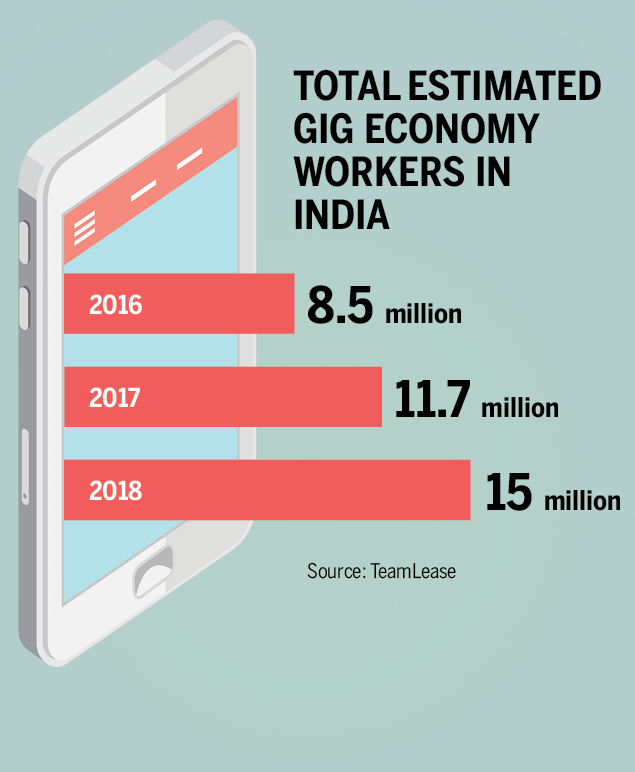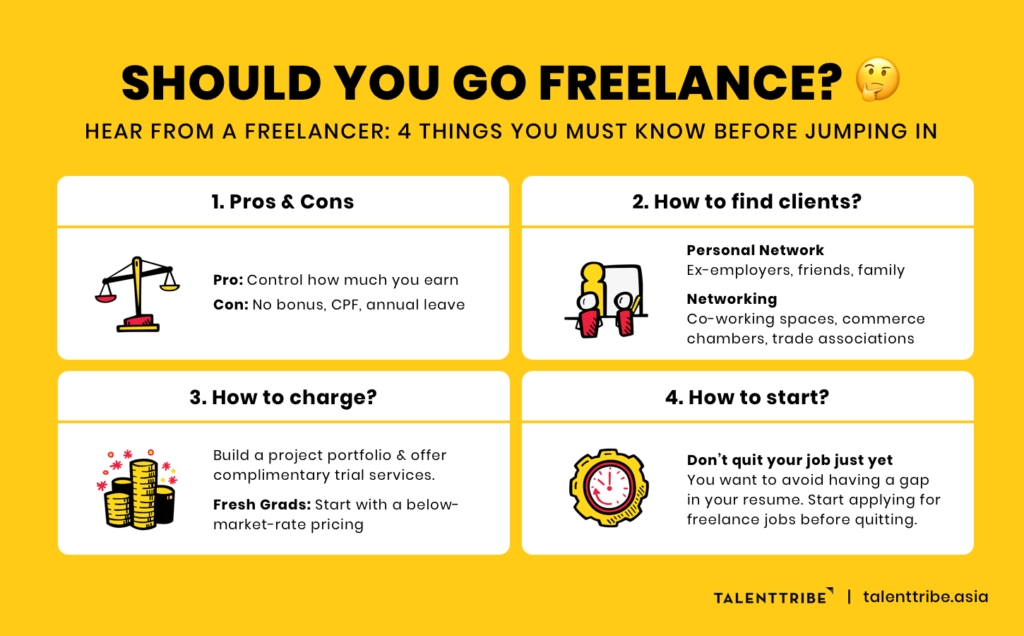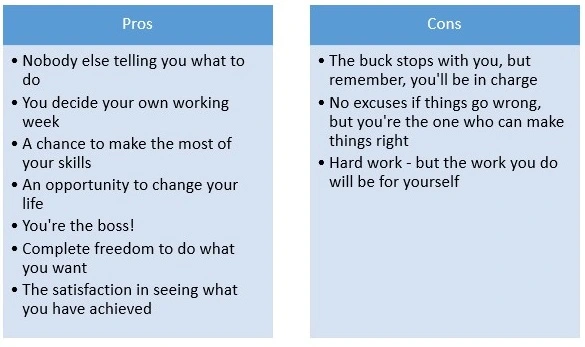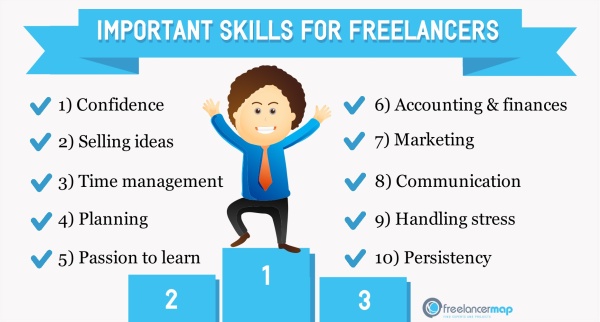10 Signs That You are Ready to Freelance Full-time

Table of Contents
- 10 Signs That You are Ready to Freelance Full-time
- Steps to Becoming a Full-time Freelancer
- Getting Full-time Freelance Jobs
- Key Takeaways
- Conclusion
- FAQS
If you’re a writer, editor, UI/UX developer, graphic designer, or SEO consultant, you may have wondered whether you should freelance full-time. It sounds very tempting to be your own boss, decide your own working hours, and skip the crowded commute.
Many people have taken the plunge. According to one report, India is the world’s second-fastest-growing freelance market, with an estimated 15 million freelancers. A recent study by the Boston Consulting Group found that the gig economy in India has the potential to create up to 90 million jobs across all sectors.

If you want to join this force, here are ten signs that you’re ready for full-time freelance.
10 Signs That You are Ready to Freelance Full-time

1. Money
You should have approximately six months’ expenses in your savings account. People make a good living as full-time freelancers, but you should not expect a regular income from the start. There will be ups and downs. If you have a financial cushion in the bank, it will keep you from getting desperate. This money should be accessible in the form of disposable income. This means it should not be tied up in financial instruments such as fixed deposits.
2. Existing clients
Many people shift to full-time freelancing only after working with a few clients on the side. Going full-time is certainly worth considering if these clients are ready to increase the amount of work they give you. The promise of increased work from such clients is a factor to consider when contemplating whether to freelance full-time.
3. Your regular job
You may be unhappy with your day job. Perhaps you have regularly been overlooked for promotions or essential tasks. There may be few prospects for advancement or change. You may not want to look for another full-time job because of the same issues. If you’re sure that you’re not cut out for a 9 to 5 routine, you should start planning a full-time freelance career.
4. Excitement
With full-time freelancing, no two days are the same. You get to work on a variety of assignments depending on your skills. Some days will be packed with work, and on others, you will need to hustle for more. There are ups and downs and plateaus. If you find such a work environment more invigorating than a conventional job, full-time freelancing can be the answer.
5. Experience and expertise
Professionals accumulate significant experience and expertise in their chosen fields over the years. But, they feel that these skills or knowledge are not being used to their full extent in their full-time job. Thus, they can find themselves in a career rut. They may not feel challenged to grow and use their abilities to the fullest. If you fall into this category, go ahead and pick a full-time freelancing career.
6. Patience and discipline
Full-time freelancing is not for those who want to see instant results. That’s not how the freelance model works. It can take time to make a name for yourself and earn a satisfying income. What is needed is a step-by-step application and a hefty dose of discipline. If you are dedicated to this, you will be rewarded in time.
7. Ditching the 9 to 5
You could be comfortable in your current job, but one aspect that you dislike is the regular 9 to 5 routine. You could want to start and finish work earlier, start later, or even take frequent breaks. If this is the case, full-time freelancing will suit you. However, keep in mind that there are times that your working hours could also be much longer than a regular job. There are no fixed hours in freelancing, so you should be flexible and ready to adjust.
8. A supportive environment
Most freelancers work from home. They should have an environment to enable this. Your family and friends should recognize the nature of your work and be ready to support you in your endeavors. When working, there should be few distractions. If you’re confident of such a support system, it’s another sign that full-time freelancing is a viable option.
9. The ability to learn
Unlike other routine jobs, full-time freelancing means working on various projects that could be very different from one another. Be willing to learn fast and apply these learnings to your work. If you’re happier doing regular and similar jobs day after day, full-time freelancing may not suit you.
10. Being your own boss
If you’re happy working on your own and set your own pace, you will enjoy a full-time freelancing career. There is no one to tell you what to do and no external company pressures. On the other hand, you will need the discipline to plan and deliver your work on time.

Remember that you don’t need to tick all the above ten boxes to prepare for a full-time freelancing career. You can look at it as a guide to determine whether you’re ready to move into another phase. It’s best not to rush but to think it through. Weigh all the pros and cons. When you’re finally sure, you can move ahead with confidence.
Steps to Becoming a Full-time Freelancer
Once you’ve decided to freelance full-time, there are a few steps you can take to ease the process.
How much do you need to spend every month, and how much do you need to earn? Are your investments and health insurance in place? This will guide you on what to aim for when it comes to monthly earnings. You may not be able to hit the mark right away, but in time you could surpass it.
Next, you should be clear about the type of services and skills you can offer. What is the range of jobs that you can take on? What are the specialties you bring to the table? Do you need to upskill certain areas? If you properly package and present all of these to prospective clients, you could ask for higher rates.
It also helps a great deal if you have an online presence. This could mean a website, a blog, or regular social media posts. You can showcase your work, talk about your talents and offer opinions and advice. This goes a long way in establishing credibility and getting noticed.
Last but not least, you should plan to network. Use your existing contacts and grow new ones. Spread the word that you’re open to work. You can also ask for advice or testimonials. Ask your contacts for introductions to others. These are important factors in getting a regular stream of freelance work.

Getting Full-time Freelance Jobs
As mentioned above, your existing contacts and clients are a great way to get freelance jobs. If they’re happy with your work, they’ll give you more and recommend you to others. Don’t be shy about asking them to do this.
Social media sites such as LinkedIn are other ways of getting freelance jobs. You need to create the right profile. List your experience, areas of expertise, and what sets you apart. You should post regularly about industry trends and your take on them. Commenting on other people’s posts with helpful suggestions is another way to get noticed.
A great way to get regular freelance work for writers and designers is via content agencies. The best ones will give you a steady stream of full-time freelance jobs across sectors and categories. Create a winning profile, start small and steady, and you’ll be well on your way.

Key Takeaways
- The rise of the gig economy is a great time for writers, editors, UI/UX developers, graphic designers, or SEO consultants to think about full-time freelancing.
- Plan your finances carefully. Keep a few months’ worth of income in the bank. Finalize investments and health insurance. Work out how much you aim to earn every month.
- Full-time freelancing requires patience and discipline. You should not expect overnight results. Be ready to work diligently. It can take a while to make a name for yourself and earn a satisfying income.
- It’s important to have a supportive home environment. Family and friends should respect your work and time. You should have the space and the equipment to deliver the goods.
- Regular networking and maintaining an online presence are necessary for full-time freelancers. This ensures that your name is top of mind for clients.
- Many full-time freelancers get regular work from content agencies. It’s one way to get a stream of jobs and meet your income targets.
Conclusion
Full-time freelancing is not for everyone. It requires a particular set of skills for success. Among them are patience, discipline, and confidence.
Before you take the leap, you should get an idea of the existing opportunities. Ask others how they are faring. Creating the right environment to work and setting up a schedule from home are other important considerations.
For many, full-time freelancing is the basis of a thriving profession. You work at your own pace and can set your targets. Look at it as a way to become the CEO of your career.
FAQs
This refers to a person who takes on paid assignments and isn’t associated with just one company. They are accountable only to themselves for the amount and quality of work. They estimate and plan their finances and are responsible for meeting deadlines.
Freelancing is flexible and best-suited to those who prefer to work independently. It has its ups and downs. One of the advantages of working with a company is employee benefits such as health insurance and leave travel allowance.
There are pros and cons to freelancing. Those who are good at it enjoy the ability to work at their own pace, financial freedom, and breaking away from commutes and office structures.
Freelancing requires a great deal of discipline and hard work. Many freelancers also need to develop their skills on an ongoing basis. In addition, they need to network and find other ways to increase the number of assignments.
1. Graphic design
2. Photography
3. SEO and social media consultancy
4. Website design and development
5. Copywriters and content creators
You should have a skill that people find valuable. Establish a reputation through networking and an online presence. Create a portfolio of your best work to be shared. Start by freelancing part-time, then consider whether moving to full-time freelancing will work for you. Register with online freelance platforms that will start giving you assignments.
Latest Blogs
Learn how to rank on AI search engines like ChatGPT, Perplexity, and Gemini by optimizing your content for authority, structure, and relevance. Stay ahead in AI-driven search with this strategic guide.
Explore the best healthcare SEO services for your medical practice. Improve online visibility and effectively reach more patients in need of your services.
Discover top social media agencies specializing in banking solutions, enhancing financial services and driving engagement.
Get your hands on the latest news!
Similar Posts

Freelancing 101
5 mins read
11 Resources For Designers to Find Freelance Jobs Online

Freelancing 101
6 mins read
30 Freelance Industry Statistics to Get You Started

Freelancing 101
5 mins read